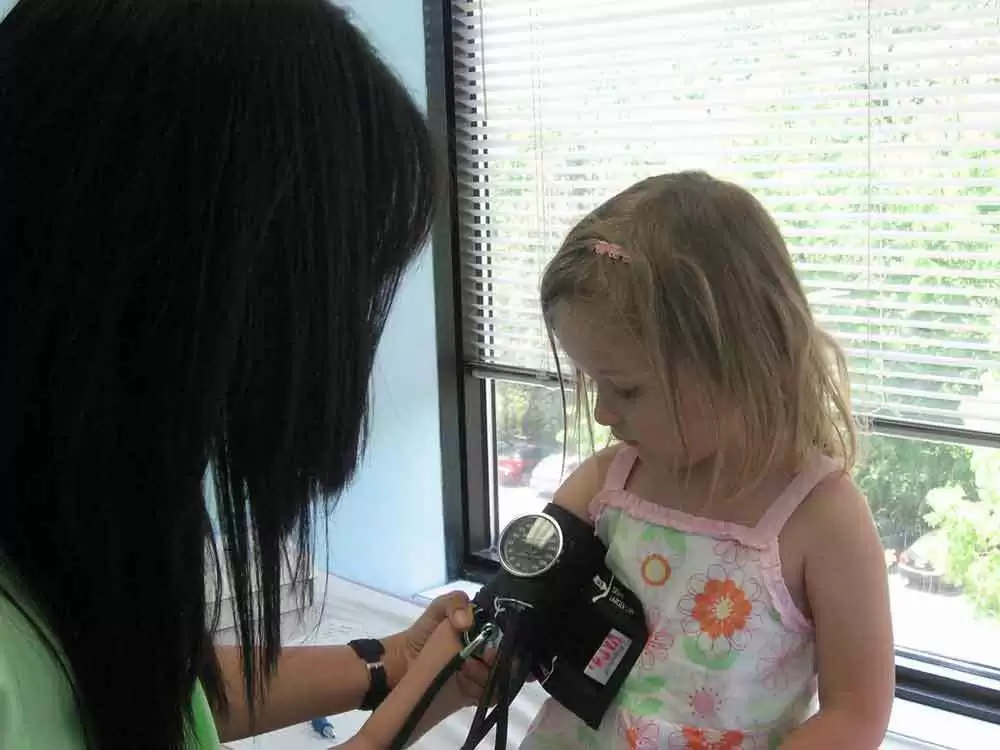
Celiac.com 11/26/2021 - Celiac disease has a prevalence of 1/100. Between 90-99% of celiacs are HLA DQ2 and/or DQ8 positive. Every individual has two DQ serotypes. Because the molecular HLA nomenclature can be confusing DQ serotyping is a method for simplifying the results. There are four major types and 5 subtypes: HLA DQ1, DQ2, DQ3 and DQ4; DQ1 has two subtypes; DQ5 and DQ6 whereas DQ3 has three subtypes; DQ7, DQ8 and DQ9. Each individual has two copies of HLA DQ. One DQ type is inherited from each parent.
Though 35-45% of individuals of Northern European ancestry are DQ2 and/or DQ8 positive only 1% has classic celiac disease as defined by abnormal blood tests and small intestinal biopsies. Several autoimmune conditions also occur more frequently in DQ2 and DQ8 positive individuals.
Celiac.com Sponsor (A12):
There is accumulating scientific evidence that many individuals are gluten sensitive and respond to a gluten free diet though they have normal blood tests and/or normal intestinal biopsies (fail to meet strict criteria for celiac disease). This is commonly being referred to as non-Celiac gluten sensitivity (NCGS). Many individuals who have NCGS are relatives of confirmed celiacs and were previously referred to as latent celiacs. Electron microscopy and immunohistochemistry studies of individuals with normal biopsies but suspected of or at risk (1st degree relatives of celiacs) have revealed ultrastructural abnormalities of the intestine and those who chose a gluten free diet usually responded and many who did not ultimately developed abnormal biopsies on long term follow-up. Seronegative celiac has also been recognized. That is, blood tests are negative, but the biopsy reveals classic abnormalities of celiac and the individual responds to a gluten free diet.
Fecal antibody testing for gliadin (AG) and tissue transglutaminase (tTG) by Enterolab in Dallas has revealed elevations in 100% of celiacs tested and up to 60% of symptomatic individuals without Celiac disease (NCGS) even if not DQ2 or DQ8 positive. (Fine, K unpublished data). The only DQ pattern he found not associated with gluten sensitivity is DQ4/DQ4, a pattern typically found in non-Caucasians who are known to have a low prevalence of Celiac disease.
Testing for DQ2/DQ8 has been suggested as a way to exclude celiac disease. That is, if you are negative for DQ2 and DQ8, then you are very unlikely to have celiac disease. However, well documented cases of celiac disease and Dermatitis Herpetiformis (DH) have been confirmed in DQ2 and DQ8 negative individuals. Moreover, we now have the clinical experience that other DQ patterns predispose to gluten sensitivity because these individuals frequently have elevated fecal antibodies to AG or tTG and respond to a gluten free diet.
Why some people develop celiac disease or become sensitive to gluten is not well understood. Risk factors include onset of puberty, pregnancy, stress, trauma or injury, surgery, viral or bacterial infections including those of the gut, medication-induced gut injury or toxicity (e.g. NSAIDs), immune suppression or autoimmune diseases, and antibiotic use resulting in altered gut flora (dysbiosis). The severity of the sensitivity is related to the DQ type, pre-existing intestinal injury, degree of exposure to gluten (how frequent and large a gluten load an individual is exposed to), and immune status. Once initiated, gluten sensitivity tends to be life-long. True celiac disease requires life-long, complete gluten avoidance to prevent serious complications, cancers, and early death.
Serotypes can be determined from blood or buccal mucosal cells obtained by oral swab from several commercial labs including Prometheus, Labcorp, Quest, The Laboratories at Bonfils, and Enterolabs. Fecal IgA anti-gliadin and IgA tissue transglutaminase antibody testing is only available commercially in the U.S. through Enterolabs. The fecal AG and tTG testing may be helpful to those with normal blood tests for celiac and/or a normal small bowel biopsy but suspected of being gluten sensitive. Though the fecal antibody results are not widely accepted by many “celiac experts” numerous testimonials of individuals testing positive only on fecal tests who have responded to a gluten free diet can be found in support groups, web postings, personal communication from Dr. Fine, and this physician’s clinical experience.
References:
- Abrams et.al. Seronegative celiac disease:increased prevalence with lesser degrees of villous atrophy. Dig Dis Sci 2004;49:546-550.
- Alaedini A. and Green P.H.R. Narrative Review: Celiac Disease: Understanding a Complex Autoimmune Disorder. Ann Intern Med. 2005;142:289-298.
- Arranz et. al. Jejunal fluid antibodies and mucosal gamma/delta IEL in latent and potential coeliac disease. Adv Exp Med Biol. 1995; 371B:1345-1348.
- Dewar D. and Ciclitira P. Clinical Features and Diagnosis of Celiac Disease. Gastroenterology 2005;128:S19.
- Kappler et.al. Detection of secretory IgA antibodies against gliadin and human tissue transglutaminase in stool to screen for coeliac disease in children:validation study. BMJ 2006; 332:213-214.
- Kaukinen et.al. HLA-DQ Typing in the Diagnosis of Celiac Disease. Am J Gastroenterol. 2002;97(3):695-699.
- Fine KD and Rostami K. Don’t throw the baby out with the bath water. BMJ February 13, 2006 rapid response editorial.
- Fine K. Early diagnosis of gluten sensitivity before the villi are gone. Transcript of presentation to Greater Louisville Celiac Support Group, June 2003.
- Picarelli et.al. Antiendomysial antibody detection in fecal supernatants: in vivo proof that small bowel mucosa is the site of antiendomysial antibody production. Am J Gastroenterol. 2002 Jan;97(1):95-98.
- Sbartati A. et.al. Gluten sensitivity and “normal” histology: is the intestinal mucosa really normal? Dig Liver Dis 2003;35:768-773.
- Sollid L. and Lie B. Celiac Disease Genetics:Current Concepts and Practical Applications. Clinical Gastroenterology and Hepatology 2005;3:843-851.
- WGO-OMGE Practice Guideline Celiac Disease. World Gastroenterology News. 2005;10(2):supplement 1-8.







Recommended Comments
There are no comments to display.
Create an account or sign in to comment
You need to be a member in order to leave a comment
Create an account
Sign up for a new account in our community. It's easy!
Register a new accountSign in
Already have an account? Sign in here.
Sign In Now